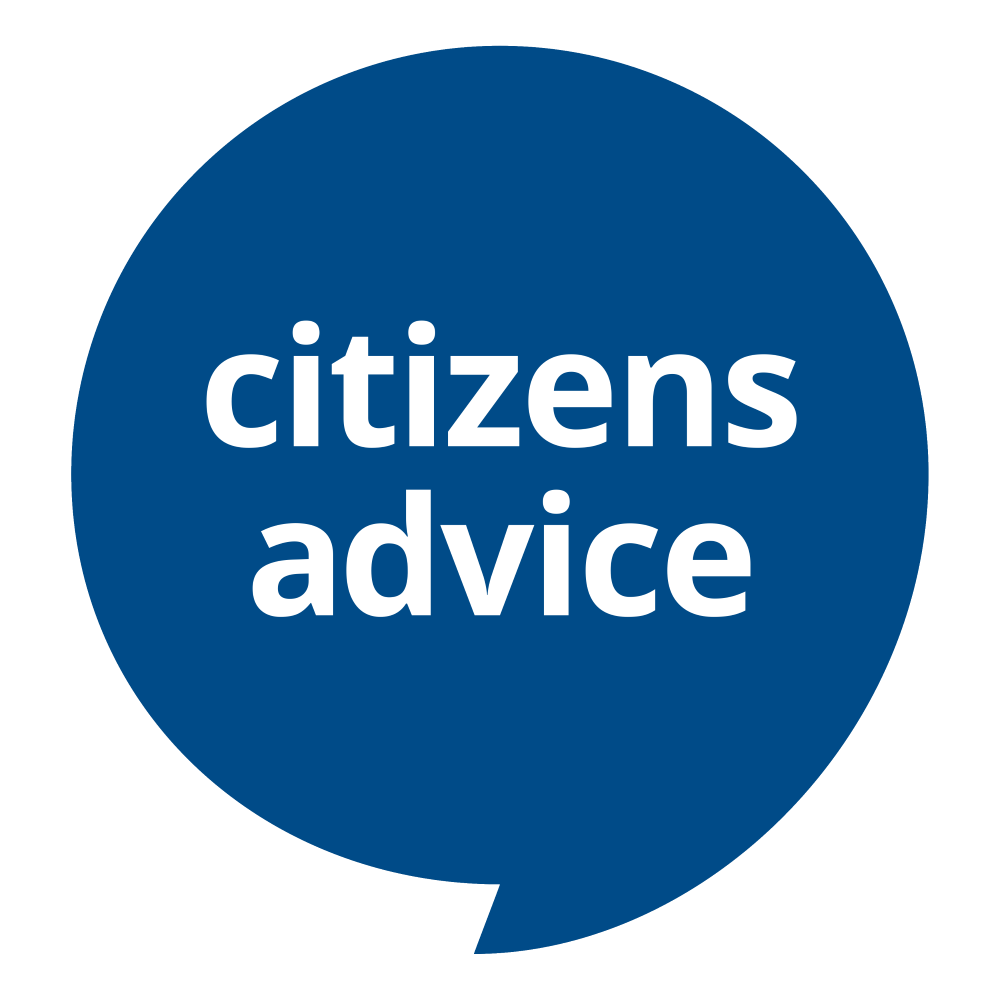Introduction
This case study outlines the impact of a pilot project from 2023 to 2024, targeting veterans in Medway, Kent. Live Music Now led the project, with generous funding from The Utley Foundation.
The project addressed isolation and loneliness among veterans in Medway. It brought veterans together through enjoyable music events, fostering social connections and raising awareness of a specialist advice service.
The project was developed in partnership with Medway Citizens Advice Veterans First, whose team highlighted the challenges of reaching veterans. Many veterans in Medway miss out on advice regarding the cost-of-living crisis, housing, debt, and benefits until it is too late.
Activities included a process of development with partners, community consultations with local veterans, and three live music events. Local musician Gavin Alexander led these participatory events, held at The Royal Engineers Museum in Gillingham during spring and summer 2024.
Participant feedback revealed that the events provided a unique experience for Medway veterans, unlike anything in their usual social calendars; something that they came to increasingly value with a greater depth of engagement. Attendees connected with new people, felt more positive about themselves, and gained a stronger sense of community. They also became aware of the specialist advice service available to them.
‘I was surprised, everybody got really stuck in to it… we hear about music helping and, certainly, that worked here.’ – Veteran Participant
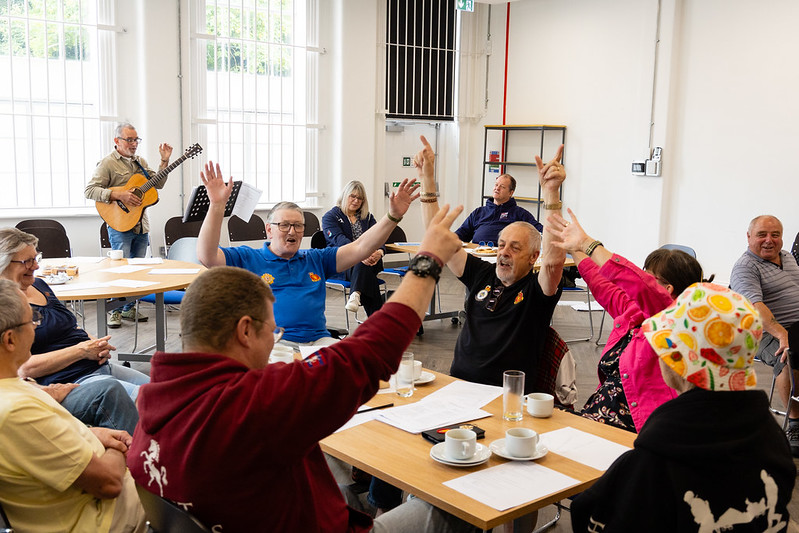
Musician: Gavin Alexander
Photographer credit: Rikard Osterlund
Development and Set-up
A key element was building a partnership with Citizens Advice in Medway, which offers specialist advice on housing, debt, and benefits. In October 2023 funding was secured from The Utley Foundation enabling a joint project. Following this, a development process took place. Citizens Advice workers agreed to attend all of the music events. This would enable them to build trust with veterans and raise awareness of their services. This approach provided a new way to reach and signpost veterans not already aware of the available offer.
In early 2024, the project entered a consultation and participant development phase. The project manager researched and attended veteran breakfast club events, connecting with potential participants and gathering feedback on event content and locations.
Significant effort went into finding the ideal event space. Key considerations included accessibility, transport links, free parking, disabled access, catering, and a welcoming environment. The Royal Engineers Museum became the perfect venue for the pilot project, benefiting all parties involved. Feedback showed that 100% of veteran attendees felt the museum was an excellent choice for these events
The Delivery
Three live music and social events took place between June and September 2024 at the Royal Engineers Museum:
- Tuesday 18 June
- Tuesday 30 July
- Tuesday 17 September
Numbers grew from 14 at the first event to 38 at the second and 46 at the third; a total cumulative number of 98. Over the series many were repeat attendees creating a core group of loyal participants.
Each event was as much social as musical with free bacon butties and hot drinks, lots of chat, banter and laughter. The musician Gavin Alexander led the music with familiar songs and took requests. His facilitation of the sessions encouraged ownership/involvement from the participants who helped to develop the content.
‘Gavin was really good on it. He was fun. There was nothing serious there. Almost nobody was bothered about how they sounded, you know, and I think Gavin was a big sell… I think the fact it was so informal, that was the main thing.’
By the final session there was a huge progression in engagement by the attendees with people bringing along their own instruments, standing to sing with Gavin, and two separate veterans arrived with their own songs to share and perform.
Familiar faces was a key element to the project’s success. Each event was attended by Gavin, the musician, the Live Music Now Project Manager, a Help for Heroes representative, the Museum Project Officer, and the Citizens Advice adviser. They attended every event, welcoming attendees and creating a sense of recognition and belonging. As relationships grew, the adviser could better identify and assist those needing advice.
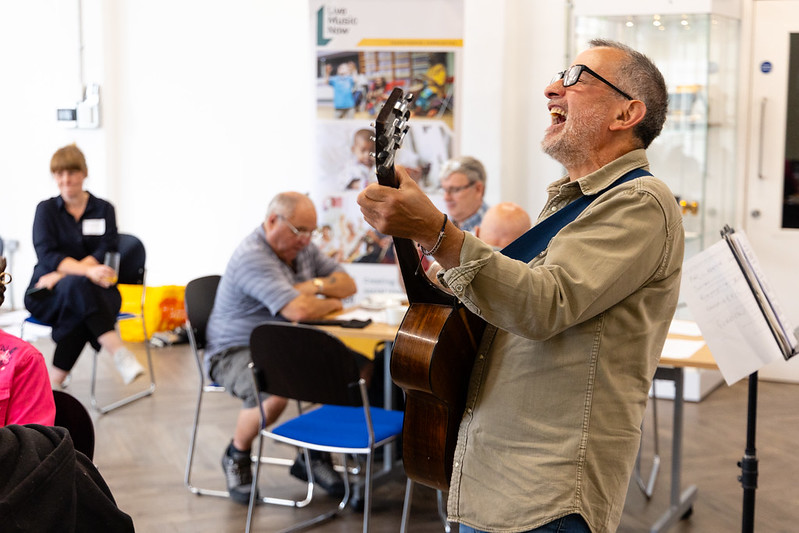
Musician: Gavin Alexander
Photographer credit: Rikard Osterlund
Outcomes and Impacts
Loneliness and mental ill health are common in the veteran community in the UK. Help for Heroes recently found that 82% of the veterans they surveyed said they were lonely and not getting the help they need[1]
‘Often veterans who are lonely and isolated are the least likely group of people to come forward and ask for help’ – Sarah, Help for Heroes Project Manager
Citizens Advice evidence tells them that key issues for Medway veterans include housing insecurity, threats of eviction, and the inability to secure relevant benefits. Without guidance, many veterans face homelessness and escalating debt, particularly Disabled veterans who often miss out on cost-of-living support payments. The emotional toll of these challenges significantly impacts their mental health and wellbeing.
This project directly addressed these needs by bringing advice into a community-focused, engaging setting where veterans can gather with peers. This approach fosters a supportive environment, reducing stigma around seeking help—participants connect over a high-quality interactive music experience and bacon butty while receiving crucial information.
‘We have been able to speak to veterans at every event and give follow-on advice and support through appointments at our office. it has made us more aware of local veterans and the networks and events they attend. We are also more aware of their needs and gaps in support in the community. As a traditionally hard to access group, there was extremely high engagement at these events. Many of them have told Citizens Advice how important it is for events such as this to be held at a regular place that they can attend.’ – Jack Lewis, Advice Services Manager at Citizens Advice Medway
Across the project we met and consulted with over 100 Medway veterans, with anonymous feedback forms completed by 51 Medway veterans; 20 during the consultation phase and 31 at the programmed events.
‘It was all the little things, you know you can say to someone, oh you get a free breakfast as well, you know, it’s an attraction… you seemed to cover a lot of little extra bits, which drew extra people in’ – Event participant
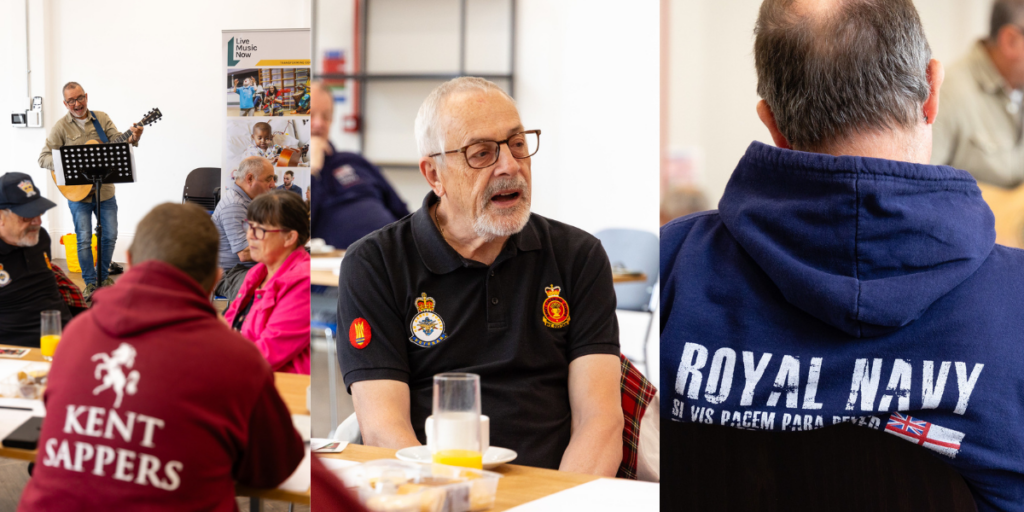
Photographer credit: Rikard Osterlund
This project responded to needs and achieved outcomes for participants
Participants had a positive, enjoyable, and engaging experience, taking more ownership and increasing their involvement over the three events.
When asked how the event made them feel participants responded with a range of positive words including Good, Happy, Brilliant, Welcome, Relaxed, Entertained, Informed.
92% of those who gave feedback said that the events met their expectations, with 100% rating them good or excellent, 100% saying they would attend again and 100% said they want more in the future.
‘What a fantastic day that last one was. That’s why people are routing for more… I don’t think anybody can perhaps believe it, that wasn’t there… it fitted so well, it wasn’t a stress, it wasn’t sort of a panic. It just happened so well, it was incredible.’
New regular social experience, that let to participants meeting new people, feeling more positive about themselves and more connected to their community
When asked ‘How often do you go to events like this?’ over 54% of respondents replied ‘Never’ or ‘Rarely’.
‘They [veterans] can be stuck indoors, and we know what happens next in a lot of cases, they’ve got no will to live and they decide not to. You’re taking that away by running these events and that is huge.’ – Andy, Medway veteran
87% of veterans reported meeting new people, and many indicated they wouldn’t leave home without these gatherings. 87% felt more positive after attending and 67% said that attending the event made them feel more connected to their community.
One significant new connection formed in the pilot was with Pembroke House in Gillingham, a care home for The Royal Navy members and their families. Several of their residents attended 2 of the 3 events as a group.
‘…one of the ladies was dancing, I mean how fantastic was that! I mean you don’t get that sort of thing happening.
They wanted to get involved and as a result it could bring other people in. I mean Gavin did a great job at pulling people in from different areas. He has to be congratulated I think on how he did it… he pulled everyone into the whole thing…’
Participants who were not previously aware of the Citizens Advice Veterans First advice service learnt about it and accessed support
Citzens Advice Medway reached and advised new people, getting support directly to those in need. 60% of feedback responses said that before attending they were not aware of the Citizens Advice services. 76% said they were more aware of and connected to that service and 72% said they would like to find out more.
‘… two big things from the meetings – I thought, the lady from Citizens Advice Bureau who was there, was able to say ‘it does still exist and we can still give you advice’… people became aware of her and the same with Victoria from the Help For Heroes… we’ve made a contact there and I’ve taken her details, shared that at the breakfast clubs. She’s come along to the model club, so that’s built up that support as well.’
Case Study: Andy’s Experience
Andy, an Army Catering Corps and Royal Engineers veteran from Medway attended all three events.
Andy’s musical journey over the three sessions was significant. The experience took him from considering himself as a non-musician to writing a song to bring along to the final session. When asked if he considers himself musical or whether he sings or plays an instrument in any other setting, Andy admits:
‘No, not at all!… I was totally surprised on that final day, that I had actually written a song for it.’
Having the opportunity and encouragement to join in was a pleasant surprise to him and offered him a new experience.
‘We weren’t really expecting the participatory stuff! We were expecting to have the usual sort of get together, perhaps with some new faces…. We weren’t expecting the sing song, although it was there advertised but I don’t think it was the drawing point initially. It was for the second and third event, people were coming along to have a sing song…’
The fact that he took the chance to try songwriting demonstrates how valuable the participatory elements were to him.
It was also important to Andy that this program offered a new regular social event:
‘[…] the social event that you ran, I personally liked the timing of it… every six weeks was good. And the big thing for me is, it was another opportunity to get together with a lot of people who perhaps hardly ever get out of the house, who are by themselves.
I’m lucky I have my wife still and we do a lot together, but there are a lot of veterans out there that have nothing other than other veteran events. So, your three events, well you saw, the attendance was fantastic…
[…] word got out very quickly. Numbers went up for the next one, and I think really for the final one… that was an amalgamation of everybody wanting to come along.’
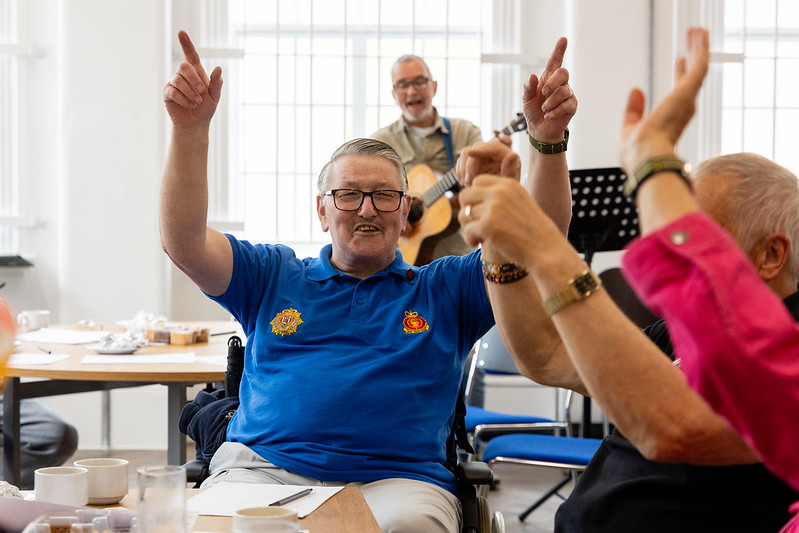
Musician: Gavin Alexander
Photographer credit: Rikard Osterlund
He could see that this was of enormous value to veterans who lack social opportunities and the negative impact this has on their mental health even creating risk of suicide.
‘I think what you’re offering is the opportunity to get those people out of their homes or who are by themselves. I think that’s the big thing about any of these events is… it’s for the likes of the people who are stuck, with bad situations, get out of those bad situations, into a good situation, like you’ve got. And yes, perhaps get interest in other things, like the singing, and the learning, the music, all of those things, they are so invaluable to the local community, the veteran community, because there’s a lot of people out there that have issues…
They can be stuck indoors, and we know what happens next in a lot of cases, they’ve got no will to live and they decide not to. You’re taking that away by running these events and that is huge.
And something else happened then, the guy who brought him along to me, who was looking after him, said he wasn’t really meant to be there. And I asked why, and he said his wife was RAF… but she died in February. Which shocked me totally. But by having that get together there, he was able to get up and get on with his life.
…the guy… just lost his wife and was able to come along that day and obviously gain some confidence… What else had he got at that moment? And I think that was fantastic.’
He could see how the music played a role in creating a friendly, welcoming environment conducive to making new connections and friendships.
‘…you tend to sort of, get into clicks, but I think the music opened up those clicks.’
He also noted the benefits of hosting events at the Royal Engineers Museum. The familiar and welcoming setting encouraged veterans to attend. Additionally, the museum offered a valuable cultural opportunity by inviting participants to explore the exhibits.
‘The opportunity to have a look around the museum, wasn’t a downgrade either, that was something that was a selling point… that made it a good focal point for people to come along, get a free cup of tea and some great company of likeminded people.’
Taking part has inspired Andy to be more proactive in supporting his local community.
‘[…] it gets me more wanting to be involved with less fortunate people, because I do appreciate how lucky we are… as a result I have organised a couple of events, the Army Catering Corps reunions. We’ve done two of those and they’ve been very successful, plus gathering funds as well. The last one that we did only last month, well we gathered £380.00 for charity…’
What Next
We have received a lot of positive feedback and demand to continue and grow this initiative. 100% of respondents said they want more of these events in the future. As Andy commented:
‘…if you’d had another one planned for 6 weeks time, the word would have gone out from the last one, and so on, with the success, it was a continuing success, and I think it needs to be a continuing thing… I know there’s a lot of demand on funding and so on, but that was working, and can still work…
People want it, and it gets people out of their homes, where they’ve sort of become used to not having anything, that’s a good move and it was working.’
All partners involved, along with Medway Council, expressed enthusiasm to continue the activities. Funding will be sought to expand the project in response to participant requests for new genres of performers, group singing, instrument learning, and more songwriting opportunities.
